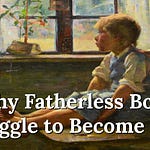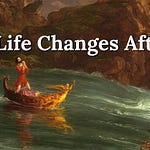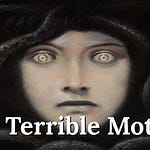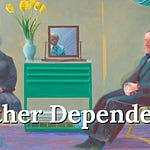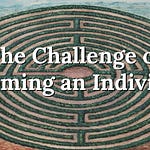“We can see nothing today that wants to grow greater, we suspect that things will continue to go down, down, to become…more comfortable, more mediocre, more indifferent.”
Friedrich Nietzsche, On the Genealogy of Morality
In the late 19th century, the German philosopher Friedrich Nietzsche observed that Western civilization was in a state of decline; it had lost its creative vitality and was no longer producing men and women who epitomized the grandeur of the West. Instead, it was producing passive and docile individuals, whose primary aim was chasing shallow pleasures and obtaining material goods. Nietzsche called these pitiful beings the Last Man and he believed that their collective existence marked the end of a once great civilization.
“Alas! The time is coming when man will no more shoot the arrow of his longing out over mankind, and the string of his bow will have forgotten how to twang!…Alas! The time is coming when man will give birth to no more stars. Alas! The time of the most contemptible man is coming…Behold! I shall show you the Last Man.”
Friedrich Nietzsche, Thus Spoke Zarathustra
In this video, relying on Bernardo Kastrup’s book The Daimon and the Soul of the West, we examine the Western identity that the Last Man has forgotten. We also explore why our well-being as a Westerner requires that we once again follow the life path upon which this identity was built.
“No wonder the Western world feels uneasy. . .It has lost its moral and spiritual values to a very dangerous degree. Its moral and spiritual tradition has collapsed, and has left a worldwide disorientation and dissociation.”
Carl Jung, Collected Works Volume 18
Western civilization was born in the Ancient Greek city-states, it then spread to Rome, and from Rome further westward into Europe and eventually the Americas. But with increasing globalization, and with mass migration dramatically altering the ethnic mix of many countries, one can no longer be said to be Western just because of one’s physical location. Rather as Kastrup explains:
“Westerness is a set of innate values and an instinctive inclination to a certain way of life, an inherent mindset, an inborn mode of being and expressing oneself in the world. The Western mind embodies a particular and recognizable set of psychological archetypes—primordial templates of thinking, feeling, wanting, and behaving—and associated dispositions. As such, the West is a psychosocial grouping, not a geographical or ethnic one, this being its strength and the basis of its long-term viability.”
Bernardo Kastrup, The Daimon and the Soul of the West
Why is it important for a man or woman of Western heritage to re-connect with the archetypal Western identity? Can’t we live in another manner and follow another path? The Swiss psychologist Carl Jung warned against this. For just as a tree will fail to grow to its full potential if transplanted into foreign soil, so too do we suffer if we try to build our identity on the traditions, or ways of life, of another culture.
“We have let the house our fathers built fall into decay, and now we try to break into Oriental palaces that our fathers never knew.”
Carl Jung, The Archetypes and the Collective Unconscious
In Jung’s day the spiritual practice of Indian Yoga was becoming popular with many Westerners who were disenchanted with the state of their society. But Jung warned his readers against following such a path. For such foreign practices do not align with the psychology of Western man, they do not mesh with our natural propensities and fail to promote the full flowering of our potentials. Or as Jung writes:
“If I remain so critically averse to yoga, it does not mean that I do not regard this spiritual achievement of the East as one of the greatest things the human mind has ever created. I hope my exposition makes it sufficiently clear that my criticism is directed solely against the application of yoga to the peoples of the West. The spiritual development of the West has been along entirely different lines from that of the East and has therefore produced conditions which are the most unfavourable soil one can think of for the application of yoga.”
Carl Jung, Collected Works Volume 11
Whether we are from the East, Middle East, Africa or the West we are typically best served by the traditions and practices of our own culture. These ways of life align with our innate dispositions and proclivities and when we follow the path our culture has built for us, we are not forced to ignore elements of our nature, nor express ourselves in ways that feel forced or fake. For we are historically conditioned beings, not born as blank slates, and our heritage plays an immense role in our psychology, or as Jung put it:
“Western man cannot get rid of his history as easily as his short-legged memory can. History, one might say, is written in the blood.”
Carl Jung, Collected Works Volume 11
In The Daimon and the Soul of the West Kastrup identifies a number of traits that strike at the essence of what it traditionally meant to be Western and fundamental among these is our relationship to matter. Western men and women are drawn to the material world, striving to decode its workings, and sculpting its elements into objects of beauty and wonder. Or as Kastrup writes:
“. . . is there anything more Western than love for the concreteness of the physical world and engagement with its matter? “Engagement” is the salient word here. Westerners, by nature, seek to engage the world of things, the concrete world of matter. Only later in life, jaded by disappointments and exhausted of suffering, do we sometimes try to disengage, abandon the world by following Eastern masters and meditating our way away from everything. But this is an adaptive mechanism, a coping strategy, not a spontaneous, natural disposition.”
Bernardo Kastrup, The Daimon and the Soul of the West
The West’s attraction to the material world is evident in the fact that modern science was born here but is also revealed by our love of technology. Even Christianity, the most important religion in Western history, has an intimate relationship with the material world. For unlike other religions such as Judaism or Islam, that discourage iconography, or the use of physical objects to promote transcendence, Christianity, especially in its Catholic and Orthodox traditions, does the opposite. These traditions use the beautiful forms in which matter can be moulded to inspire the awe and wonder that a religious mindset requires, and this is another indication that the Western path is to fully engage with the material world, not to turn away from it. Or as Kastrup writes:
“We live our lives in the context of matter and largely couch their meaning in it: the home that cradles us, the car that empowers us, the art that moves us, the places that inspire us, the clothes that represent us, the things we create and thereby embody us, and so on.”
Bernardo Kastrup, The Daimon and the Soul of the West
Another fundamental archetype of Western identity is a purpose-oriented mindset or a teleological drive. We are constantly striving for aims and goals and a lack of purpose tends to generate suffering for those of us in the West.
In addition to a teleological drive that pulls us forward, we are also pushed from behind by a sense that something is lacking at the core of our being. No matter what we discover, create, attain, or accomplish we are never fully satisfied and always in search of more, or as Kastrup writes:
“…there is indeed a perennial, primordial lack underlying the Western mind; one that is simply obfuscated by our ephemeral flashes of victory, success, consumption, or whatever the distraction of the moment is.”
Bernardo Kastrup, The Daimon and the Soul of the West
While we all sense this lack, most people blame it on the contingencies of life, be it personal failures, the troubles of childhood, an unsatisfying job, a bad marriage, a crumbling economy, or the sick state of society.
“But it hardly ever occurs to us that the lack we feel wasn’t caused;” explains Kastrup “instead, it has always been present. . .We’re simply put together this way, archetypally. The Western life is surfed atop a forever-rolling wave of primordial lack. . .Precisely because we lack, we act, we try, we fight, we risk, we thrash about, we advance, we screw up, we live…”
Bernardo Kastrup, The Daimon and the Soul of the West
This primordial lack is a motivating force behind the active nature of Westerners, or what some call our Promethean impulse. In ancient Greek mythology, Prometheus was the titan who stole fire from the gods and gave it to humanity. Our Promethean impulse drives us to constantly create, discover, and build new things and often with little regard for the consequences. This frenzied activity has created the most technologically advanced society in history and one of the most culturally rich. This drive, however, is amoral and so leads to cultural advancements but is also responsible for some of the evils perpetrated by the West. From the crusades, to colonialism, to the two Great Wars, and the nuclear bomb, there are no lack of examples where this innate drive has pushed us to commit immoral acts.
“Our felt lack propels us towards great good, but also great evil. Frankly, we are loose cannons on the ship of life on earth. Our potential is great – we can be, and have been for a few centuries now, the global engine of human progress – but so is the great danger we represent. Arguably, we’re nature’s greatest gamble on this planet.”
Bernardo Kastrup, The Daimon and the Soul of the West
We cannot rid ourselves of our Promethean impulse without neutering our potential and losing our creative vitality and for this reason it is crucial for Western men and women to understand the nature of evil. We must recognize that we all have the capacity for evil and we must be on guard for its expression in ourselves and others. For with such an awareness we are better equipped to apply a moral discernment to the relentless seeking that defines the Westerner and to channel our Promethean impulse in productive ways that advance civilization, rather than destroy it.
Another fundamental element of Western identity is its strong emphasis on individualism. Perhaps more than any other civilization in history the West understood the importance of allowing men and women to unfold the idiosyncratic side of their personality. As Westerners we are naturally pulled in this direction and any blockages to this process manifests as addictions, neuroses, depression and anxiety disorders.
“Individual expression is the engine of the West. We feel the unique push of nature arising from deep within us. . .Even if we rationally believe that the best life-path is the one culture and social expectations lay before us, something in us rebels, screams, trashes about until we hear it and adjust our course accordingly.”
Bernardo Kastrup, The Daimon and the Soul of the West
To choose our own life path and to become an individual we need freedom. We need property rights, economic freedoms and freedoms of speech and association, which were fundamental in the West until recently. Modern day governments, however, are increasingly authoritarian and intruding in ever more areas of life and this is thwarting our ability to individuate. Far from a protector of Western values, governments and the politicians and bureaucrats that run them, have become their greatest threat. And as Kastrup writes:
“Individual freedom is the quintessential Western value: the freedom to live and express ourselves as nature wants to live and express itself through us . . . Nature must be free to do what it must – with moral oversight, of course – and it must do a great many unique things . . . That’s why Western countries attract so many outsiders: the latter – Western minds themselves – yearn for the freedom to be themselves and express themselves in their natural, unique ways.”
Bernardo Kastrup, The Daimon and the Soul of the West
While Western governments are interfering with our ability to live free, at least for now, we have enough freedom to follow the archetypal Western path. We can fully engage with the material world by building, creating, and discovering new things, we can orient our life in a teleological manner, allowing the Promethean impulse of our primordial lack to impel us forward in action, and in the process, we can actualize our potentials and become who we are.
How do we begin? What purpose do we adopt? What actions do we take? According to Kastrup to fully realize our Western identity we must connect to our Daimon and follow its lead.
“We are segments of nature, not mere witnesses; we didn’t parachute into nature, but grew out of it. Therefore, we are nature, as expressed in a particular volume of space time. Given this, it is also naïve to expect there to be no impersonal force – no impersonal will – acting within us, and through us; of course there is. And I call it the Daimon.”
Bernardo Kastrup, The Daimon and the Soul of the West
The Daimon has long been recognized as the force or agency that impels man toward his archetypal identity. Plato discusses how Socrates was guided by his Daimon in the Myth of Er. While Friedrich Nietzsche, a man who was possessed by this force more than most, and who referred to his Daimon as the inner tyrant, wrote the following:
“I have an aim, which compels me to go on living and for the sake of which I must cope with even the most painful matters. . .the “tyrant in me,” the inexorable tyrant, wills that I conquer this time too.”
When we follow our Daimon – or what others have called our soul, vocation, fate, or calling – our life is infused with purpose and meaning and we develop into the person we are meant to be.
“. . .our felt need for a purpose is the intuitive passion that links us to the Daimon’s impersonal will. The idiosyncrasies of our individuality, too, reflect the particular expression of the Daimon in each of us. We are individuals only in so far as the Daimon’s will in us is differentiated. Our Western love affair with matter also reflects the Daimon’s unabashed interest in realizing its impersonal agenda through engagement with the world, not detachment from it. We love matter because the Daimon in us wants to express itself in the world.”
Bernardo Kastrup, The Daimon and the Soul of the West
While the Daimon’s expression will be unique in each of us, there are steps we can take to open ourselves up to this guiding force and clues we can look for to detect its call. Firstly, we should strive to diminish our need for social validation, status, or fame. For the Daimon, as a force of nature, is not concerned with these things – it may lead us down a path where social success is its by-product, but it is just as likely to do the opposite. If, therefore, we are hyper-focused on attaining external measures of success, or people pleasing, we will drown out the call of our Daimon.
We should also recognize that our Daimon tends to push us towards pursuits that fit our talents and character traits. This force of nature, in other words, impels us to do things we are good at. If we find ourselves stuck in a career in which we cannot excel, then we are probably not following our Daimon, or as Kastrup writes:
“. . .[a] telltale sign of Daimonic presence is that it always pushes toward something that, though not necessarily part of one’s personal agenda, one happens to be good at. Nature is not inconsistent: it chooses its instruments wisely; it won’t expect of one something one can’t do; it will make sure one has the gift – the skill set – required to pursue one’s fate. So if you think it’s the Daimon forcing you to do something you not only don’t wish to do, but also can’t do then think twice: instead of the Daimon, the push may be coming from some secret self-deceptive narrative of your own.”
Bernardo Kastrup, The Daimon and the Soul of the West
The Daimon also tends to express itself in strong feelings, rather than a voice within our head. The Daimon triggers emotions pushing us toward certain actions and pursuits and away from others. And one of its most powerful use of emotions is to trigger pain and suffering when we are straying off course, or as Kastrup explains:
“The adequate reaction to suffering is to pay attention to it critically, for your suffering – unless it is self-imposed in an artificial manner – is trying to show you something, propel you toward something, force some creative act out of you. Suffering is the Daimon’s tool to prevent you from getting stuck and steer you in the direction nature has in mind for you. This is the fate of the Western mind: to pursue its natural teleological arch propelled by Daimonic suffering.”
Bernardo Kastrup, The Daimon and the Soul of the West
It was by following the Western path, through all its trial and tribulations, that our forebears created one of the greatest civilizations in history. But today, in the age of the Last Man, most of us are focused on attaining money, material goods, and status, while spending our free time drowning in base pleasures and disconnected from the call of our Daimon. This, however, is a meaningless life path that fails to satisfy the Western demands of our nature and the more of us who live in this manner, the more we contribute to the fall of the West. We need to abandon the path of the Last Man and follow our Daimon, for as Kastrup writes:
“. . .doing the Daimon’s bidding – i.e., accepting one’s natural fate – saturates life with meaning. They who are fulfilling their fates never experience nihilism, or lose touch with life’s immanent magic, purpose, and significance. Depression and ennui are not part of their lives. . . So although being a slave to the Daimon is often excruciatingly difficult, it does have this handsome payoff: the so-called meaning crisis that saddles the [Last Man] becomes so remote and abstract as to effectively vanish into thin air.”
Bernardo Kastrup, The Daimon and the Soul of the West
Will more of us following the Daimon save Western civilization? When we observe the scarcity of those who adhere to the Western identity, and the great number of those who live as Last Men, it is difficult to hold out hope. But a Western revival will not require that a majority walk the archetypal Western path, it only requires a minority. For the Last Men are weak and powerless beings, while the men or women who follow the Daimon embody the power of a force of nature and in the process make a mark on history, or as the German polymath Johann Goethe wrote:
“. . .the most fearful manifestation of the Daimonical is when it is seen predominating in some individual character. . .a tremendous energy seems to be seated in [such persons], and they exercise a wonderful power over all creatures, and even over the elements; and, indeed, who shall say how much farther such influence may extend?”
Johann Wolfgang von Goethe, The Autobiography of Goethe: Truth and Poetry: From My Own Life



